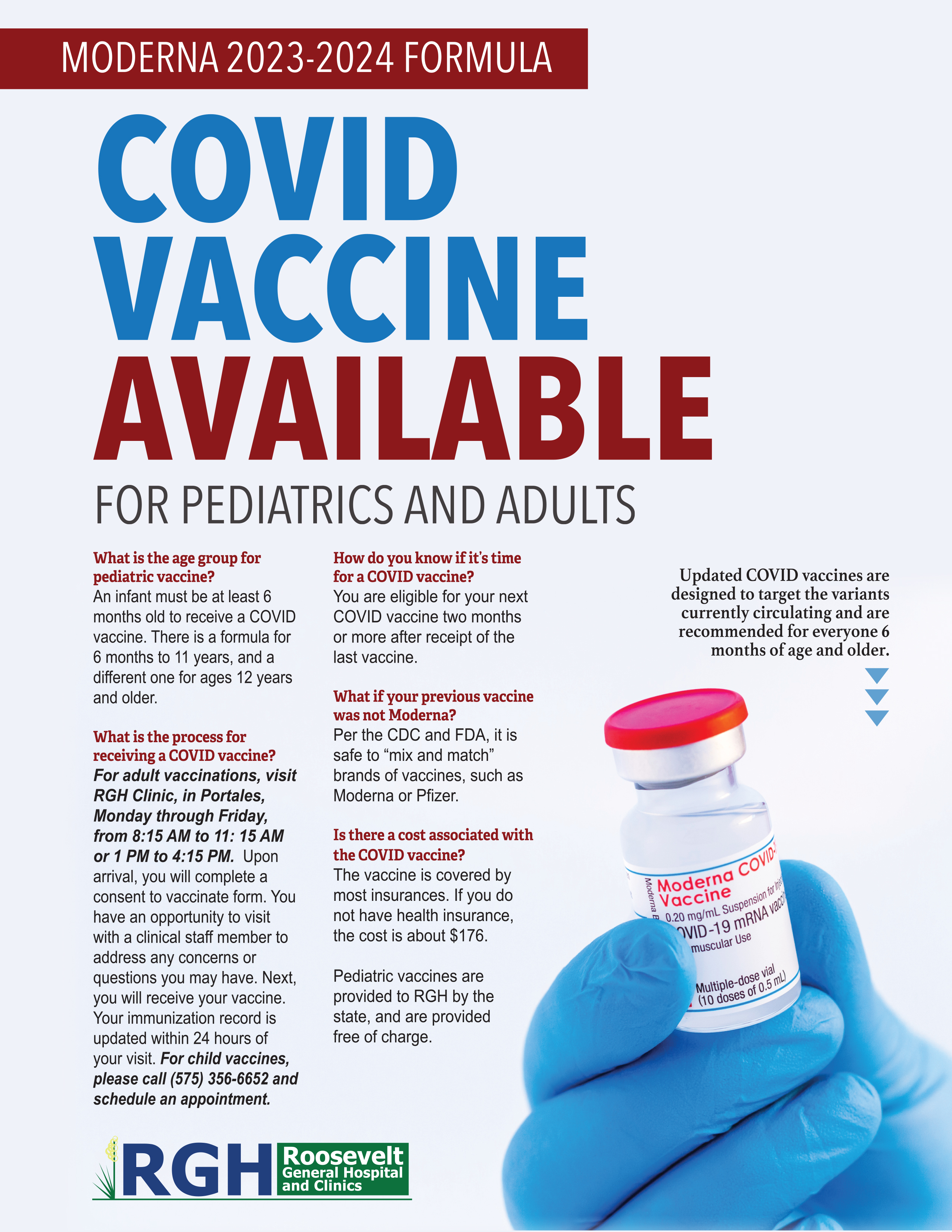The ordinance passed with a 4 to 3 vote at last nights Council Meeting, with Dennis Lopez casting the only No vote. After over two hours of listening to public comment from both sides of the debate, the commission approved the motion and called for a vote. Commissioner Lopez spoke against the ordinance and requested the commission table the action. Commissioner Grider stated that there was a motion and a second on the floor and called for a vote.
ORDINANCE 2023-01
COUNTY OF ROOSEVELT, NEW MEXICO:
ORDINANCE REQUIRING ABORTION PROVIDERS IN ROOSEVELT COUNTY TO
COMPLY WITH FEDERAL LAW
WHEREAS, federal law imposes felony criminal liability on every person who ships or receives
abortion pills or abortion-related paraphernalia in interstate or foreign commerce, see 18 U.S.C.
§§ 1461–62, and all such acts are predicate offenses under the federal Racketeer Influenced and
Corrupt Organizations Act (RICO), see 18 U.S.C. § 1961.
WHEREAS, the Constitution and laws of New Mexico do not and cannot secure a right, privilege
or immunity to act in violation of federal criminal statutes such as 18 U.S.C. §§ 1461–62, or to
engage in criminal or racketeering conduct as defined by federal law.
WHEREAS, The County Commissioners are bound by oath to support and defend the
Constitution of the United States, and the statutory provisions codified at 18 U.S.C. §§ 1461–62
are the “supreme Law of the Land” under Article VI of the Constitution and must be obeyed and
respected by every person within Roosevelt County and by every judge in the state of New Mexico.
See U.S. Const. art. VI (“[T]he Laws of the United States . . . shall be the supreme Law of the
Land; and the Judges in every State shall be bound thereby, any Thing in the Constitution or Laws
of any State to the Contrary notwithstanding.”).
NOW, THEREFORE, BE IT ORDAINED by the Board of County Commissioners of Roosevelt
County, that:
Section 1. Definitions. As used in this ordinance:
A. “Abortion” means the act of using, prescribing, administering, procuring, or selling of any
instrument, medicine, drug, or any other substance, device, or means with the purpose to
terminate the pregnancy of a woman, with knowledge that the termination by any of those
means will with reasonable likelihood cause the death of an unborn child. The term does
not include:
1. In vitro fertilization or fertility treatments of any type;
2. The use, prescription, administration, procuring, or selling of Plan B, morning-after
pills, intrauterine devices, or any other type of contraception or emergency
contraception; or
3. An act performed with the purpose to:
a. Save the life or preserve the health of the unborn child;
2
b. Remove a dead unborn child caused by spontaneous abortion; or
c. Remove an ectopic pregnancy, the implantation of a fertilized egg or embryo
outside of the uterus.
B. “Abortion clinic” means any building or facility, other than a hospital, where an abortion
of any type is performed, or where abortion-inducing drugs are dispensed, distributed, or
ingested.
C. “Hospital” means an institution that is:
1. Primarily engaged in providing, by or under the supervision of physicians, inpatient
diagnostic and therapeutic services or rehabilitation services; and
2. Duly licensed for this purpose under the laws of New Mexico.
D. “Interactive computer service” means any information service, system, or access
software provider that provides or enables computer access by multiple users to a computer
server, including specifically a service or system that provides access to the Internet and
such systems operated or services offered by libraries or educational institutions.
E. “Woman” and “women” include any person whose biological sex is female, including
any person with XX chromosomes and any person with a uterus, regardless of any gender
identity that the person attempts to assert or claim.
Section 2. Compliance with Federal Abortion Laws Required.
A. It shall be unlawful for any person to violate 18 U.S.C. § 1461 by using the mails for the
mailing, carriage in the mails, or delivery of:
1. Any article or thing designed, adapted, or intended for producing abortion; or
2. Any article, instrument, substance, drug, medicine, or thing which is advertised or
described in a manner calculated to lead another to use or apply it for producing
abortion;
B. It shall be unlawful for any person to violate 18 U.S.C. § 1462 by:
1. Using any express company or other common carrier or interactive computer service
for carriage in interstate or foreign commerce of any drug, medicine, article, or thing
designed, adapted, or intended for producing abortion;
3
2. Knowingly taking or receiving, from such express company or other common carrier
or interactive computer service, any matter or thing described in subsection (B)(1).
C. It shall be unlawful for any person to engage in conduct that aids or abets the violations of
18 U.S.C. § 1461 or 18 U.S.C. § 1462 described in subsection (A).
D. Notwithstanding any other law, the requirements of this section shall be enforced
exclusively through the private civil actions described in section 3. No direct or indirect
enforcement of this section may be taken or threatened by Roosevelt County or any of its
employees or agents against any person or entity, by any means whatsoever, and no
violation of this section may be used to justify or trigger the enforcement of any other law
or any type of adverse consequence under any other law, except as provided in section 3.
This section does not preclude or limit the enforcement of any other law or regulation
against conduct that is independently prohibited by such other law or regulation, and that
would remain prohibited by such other law or regulation in the absence of this section.
Section 3. Private Right of Action.
A. Any person, other than the state, its political subdivisions, including Roosevelt County, and
any officer or employee or agent of a state or local governmental entity in this state, has
standing to bring and may bring a civil action against any person or entity that:
1. Violates any provision of section 2(A), section 2(B), or section 2(C); or
2. Intends to violate any provision of section 2(A), section 2(B), or section 2(C).
B. If a claimant prevails in an action brought under this section, the court shall award:
1. Injunctive relief sufficient to prevent the defendant from violating section 2;
2. Nominal and compensatory damages if the plaintiff has suffered injury or harm from
the defendant’s conduct, including but not limited to loss of consortium and emotional
distress;
3. Statutory damages in an amount of not less than $100,000 for each violation of section
2(A), section 2(B), or section 2(C); and
4. Costs and reasonable attorney’s fees.
C. Notwithstanding Subsection (B), a court may not award relief under Subsection (B)(3) or
(B)(4) in response to a violation of Subsection (A)(1) if the defendant demonstrates that a
court has already ordered the defendant to pay the full amount of statutory damages under
Subsection (B)(3) in another action for that particular violation of section 2.
4
D. Notwithstanding any other law, a person may bring an action under this section not later
than the sixth anniversary of the date the cause of action accrues.
E. Notwithstanding any other law, the following are not a defense to an action brought under
this section:
1. Ignorance or mistake of law;
2. A defendant’s belief that the requirements or provisions of this chapter are
unconstitutional or were unconstitutional;
3. A defendant’s reliance on any court decision that has been vacated, reversed, or
overruled on appeal or by a subsequent court, even if that court decision had not been
vacated, reversed, or overruled when the cause of action accrued;
4. A defendant’s reliance on any state or federal court decision that is not binding on the
court in which the action has been brought;
5. A defendant’s reliance on any federal or state statute, agency rule or action, or treaty
that has been repealed, superseded, or declared invalid or unconstitutional, even if that
federal or state statute, agency rule or action, or treaty had not been repealed,
superseded, or declared invalid or unconstitutional when the cause of action accrued;
6. Non-mutual issue preclusion or non-mutual claim preclusion;
7. The consent of the plaintiff or the unborn child’s mother to the abortion;
8. Contributory or comparative negligence;
9. Assumption of risk;
10. Any claim that the enforcement of this chapter or the imposition of civil liability against
the defendant will violate the constitutional rights of third parties, except as provided
by section 4.
F. This section may not be construed to impose liability on any speech or conduct protected
by the First Amendment of the United States Constitution, as made applicable to the states
through the United States Supreme Court’s interpretation of the Fourteenth Amendment of
the United States Constitution, or by Article II, section 17 of the New Mexico Constitution.
G. Notwithstanding any other law, neither Roosevelt County, nor any of its officers,
employees, or agents, may:
1. Act in concert or participation with anyone who brings suit under this section;
5
2. Establish or attempt to establish any type of agency or fiduciary relationship with a
person who brings suit under this section;
3. Make any attempt to control or influence a person’s decision to bring suit under this
section or that person’s conduct of the litigation; or
4. Intervene in any action brought under this section.
This subsection does not prohibit a person or entity described by this subsection from filing
an amicus curiae brief in the action, so long as that person or entity does not act in concert
or participation with the plaintiff or plaintiffs who sue under this section or violate any
provision of Subsection (G)(1)–(4).
H. Notwithstanding any other law, a court may not award costs or attorneys’ fees to a litigant
who is sued under this section.
I. Notwithstanding any other law, a civil action under this section may not be brought:
1. Against the woman upon whom an abortion was performed or induced or attempted to
be performed or induced in violation of this chapter, or against a pregnant woman who
intends or seeks to abort her unborn child in violation of this chapter;
2. Against any person or entity that performs, aids or abets, or attempts or intends to
perform or aid or abet an abortion at the behest of federal agencies, contractors, or
employees that are carrying out duties under federal law, if a prohibition on that
abortion would violate the doctrines of preemption or intergovernmental immunity;
3. Against any common carrier that transports a pregnant woman to an abortion provider,
if the common carrier is unaware that the woman intends to abort her unborn child; or
4. By any person who impregnated a woman seeking an abortion through an act of rape,
sexual assault, or incest, or by anyone who acts in concert or participation with such a
person.
Section 4. Affirmative Defenses.
A. A defendant against whom an action is brought under section 3 may assert an affirmative
defense to liability under this section if:
1. The imposition of civil liability on the defendant will violate rights, privileges, or
immunities secured by the Constitution or laws of the United States or by the
6
Constitution or laws of the state of New Mexico, that belong to the defendant
personally; or
2. The defendant
a. Has standing to assert the rights, privileges, or immunities of a third party under the
tests for third-party standing established by the Supreme Court of the United States
or the Supreme Court of New Mexico; and
b. Demonstrates that the imposition of civil liability on the defendant will violate
rights, privileges, or immunities secured by the Constitution or laws of the United
States, or by the Constitution or laws of the state of New Mexico, that belong to
that third party.
B. The defendant shall bear the burden of proving the affirmative defense in Subsection (A)
by a preponderance of the evidence.
C. Nothing in this section or chapter shall limit or preclude a defendant from asserting the
unconstitutionality of any provision or application of this ordinance as a defense to liability
under section 3, or from asserting any other defense that might be available under any other
source of law.
Section 5. Abortion License—Required.
It is unlawful for any person or business entity to open or operate an abortion clinic in
Roosevelt County without first obtaining a license pursuant to this ordinance from the Roosevelt
County Manager’s Office.
Section 6. Abortion License—Application.
Any person or business entity wishing to apply for a license to open or operate an abortion
clinic within Roosevelt County shall file an application with the County Manager containing the
following:
A. Name. The name of the person or business entity requesting the license.
B. Address and Phone Number. The mailing address and phone number of the person or
business entity requesting the license.
C. Location. A street address and legal description for the property for which the license
is requested.
7
D. Map. Attached to the application must be a map showing the location, proposed and
existing improvements (such as buildings, fences, etc.), and
the relationship of the location to nearby streets, residential housing, public buildings
(such as churches, schools, etc.), public utilities, and the like.
E. Proposed Activity. A brief narrative describing the activities planned at the location,
including the types of abortions to be performed.
F. Compliance Statement. A statement to the effect that the applicant, or its representative
if a business entity, is aware of the regulations contained in this chapter that require
compliance with federal abortion laws, and that it will comply with those requirements
of federal law as set forth in section 9.
Section 7. License—Issuance or Refusal.
The County Manager shall issue a license to the applicant within thirty (30) days of receiving
the application unless:
A. The applicant fails to provide the information and material required by section 6; or
B. The County Manager finds that the proposed activity cannot be accomplished as
described without violating the requirements of federal law as set forth in section 9.
Section 8. License—Period of validity—Revocation—Appeal.
A. Once issued, a license shall be valid until revoked as provided herein. The County
Manager shall revoke a license if he or she finds that:
1. The applicant or licensee, or any of their employees or agents, have violated the
requirements of federal law as set forth in section 9; or
2. The applicant or licensee, or any of their employees or agents, have deviated from
the activities and plans presented in the application or are no longer actively
pursuing such activities.
B. If the County Manager fails to revoke a license as required by this section, then any
resident of the County has standing to sue and may sue the County Manager for a writ
of mandamus compelling him or her to comply with the requirements of this chapter.
Section 9. Compliance with Federal Abortion Laws Required.
A. It shall be unlawful for any person or licensed abortion clinic within the municipal
boundaries of Roosevelt County, or any employee or agent of an abortion clinic
8
licensed by Roosevelt County, to violate 18 U.S.C. § 1461 by using the mails for the
mailing, carriage in the mails, or delivery of:
1. Any article or thing designed, adapted, or intended for producing abortion; or
2. Any article, instrument, substance, drug, medicine, or thing which is advertised or
described in a manner calculated to lead another to use or apply it for producing
abortion;
B. It shall be unlawful for any person or licensed abortion clinic within the municipal
boundaries of Roosevelt County, or any employee or agent of an abortion clinic
licensed by Roosevelt County, to violate 18 U.S.C. § 1462 by:
1. Using any express company or other common carrier or interactive computer
service for carriage in interstate or foreign commerce of any drug, medicine, article,
or thing designed, adapted, or intended for producing abortion; or
2. Knowingly taking or receiving from such express company or other common
carrier or interactive computer service any matter or thing described in subsection
(B)(1).
C. It shall be unlawful for any person or licensed abortion clinic within the municipal
boundaries of Roosevelt County, or any employee or agent of an abortion clinic
licensed by Roosevelt County, to engage in conduct that aids or abets the violations of
18 U.S.C. § 1461 or 18 U.S.C. § 1462 described in subsection (A).
Section 10. Severability.
A. Mindful of Leavitt v. Jane L., 518 U.S. 137 (1996), in which in the context of
determining the severability of a state statute regulating abortion the Supreme Court of
the United States held that an explicit statement of legislative intent is controlling, it is
the intent of the Board of County Commissioners that every provision, section,
subsection, sentence, clause, phrase, or word in this chapter, and every application of
the provisions in this chapter to every person, group of persons, or circumstances, are
severable from each other.
B. If any application of any provision in this chapter to any person, group of persons, or
circumstances is found by any court to be invalid, preempted, or unconstitutional, for
any reason whatsoever, then the remaining applications of that provision to all other
persons and circumstances shall be severed and preserved, and shall remain in effect.
All constitutionally valid applications of the provisions in this chapter shall be severed
from any applications that a court finds to be invalid, preempted, or unconstitutional,
because it is the Board of County Commissioners’ intent and priority that every single
valid application of every provision in this chapter be allowed to stand alone.
C. The Board of County Commissioners further declares that it would have enacted this
chapter, and each provision, section, subsection, sentence, clause, phrase, or word, and
all constitutional applications of the provisions of this chapter, irrespective of the fact
that any provision, section, subsection, sentence, clause, phrase, or word, or
applications of this chapter were to be declared invalid, preempted, or unconstitutional.
D. If any provision of this chapter is found by any court to be unconstitutionally vague,
then the applications of that provision that do not present constitutional vagueness
problems shall be severed and remain in force, consistent with the severability
requirements of Subsections (A), (B), and (C).
E. No court may decline to enforce the severability requirements of Subsections (A), (B),
(C), and (D) on the ground that severance would “rewrite” the ordinance or involve the
court in legislative or lawmaking activity. A court that declines to enforce or enjoins a
state or local official from enforcing a statute or ordinance is never rewriting the
underlying law or engaging in legislative or lawmaking activity, as the statute or
ordinance continues to contain the same words as before the court’s decision. A judicial
injunction or declaration of unconstitutionality:
1. Is nothing more than an edict prohibiting enforcement that may subsequently be
vacated by a later court if that court has a different understanding of the
requirements of the New Mexico Constitution or United States Constitution;
2. Is not a formal amendment of the language in a statute or ordinance; and
3. No more rewrites a statute or ordinance than a decision by the executive not to
enforce a duly enacted statute in a limited and defined set of circumstances.
F. If any court, including any state or federal court, disregards any of the severability
requirements in Subsections (A), (B), (C), (D), or (E), and declares or finds any
provision of this chapter facially invalid, preempted, or unconstitutional, when there
are discrete applications of that provision can be enforced against a person, group of
persons, or circumstances without violating federal or state law or the federal or state
constitutions, then that provision shall be interpreted, as a matter of county law, as if
the County had enacted a provision limited to the persons, group of persons, or
circumstances for which the provision’s application will not violate federal or state law
or the federal or state constitutions, and every court shall adopt this saving construction
of that provision until the court ruling that pronounced the provision facially invalid,
preempted, or unconstitutional is vacated or overruled.
10
EFFECTIVE DATE
This ordinance shall go into immediate effect upon majority vote by the Board of County
Commissioners.
PASSED, ADOPTED, AND APPROVED this _________ day of __________, 2023, by the
Roosevelt County Board of County Commissioners in an open meeting in Portales, New Mexico.
BODY OF COUNTY COMMISSIONERS
ROOSEVELT COUNTY, NEW MEXICO
ATTEST:
BODY OF COUNTY COMMISSIONERS
ROOSEVELT COUNTY, NEW MEXICO
ATTEST:
_______________________________________
Dennis Lopez – District I
Voted: □ Yes □ No □ Abstained
__________________________________ _______________________________________
Mandi Park, Roosevelt County Clerk Rodney Savage – District II
Voted: □ Yes □ No □ Abstained
_______________________________________
Roy Lee Criswell – District III
Voted: □ Yes □ No □ Abstained
_______________________________________
Tina Dixon– District IV
Voted: □ Yes □ No □ Abstained
_______________________________________
Paul Grider– District V
Voted: □ Yes □ No □ Abstained






























